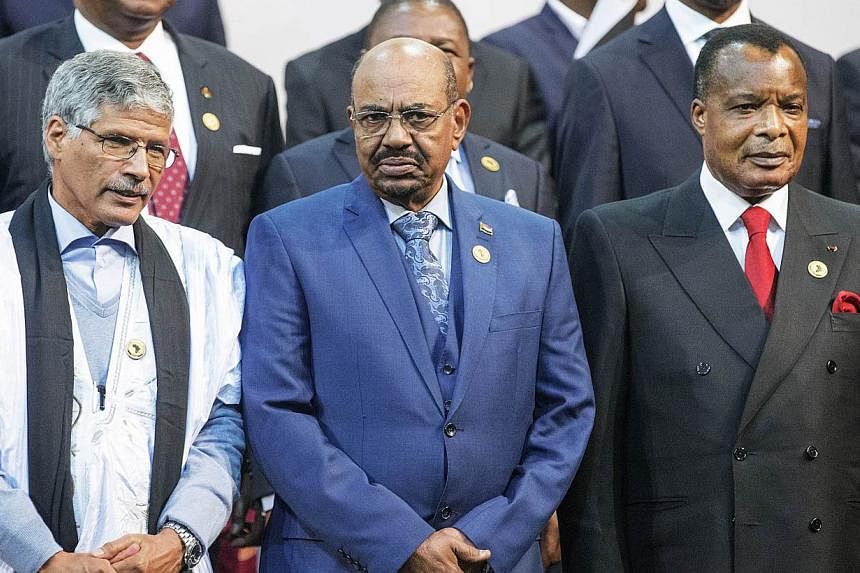JOHANNESBURG (AFP/REUTERS) - Sudanese President Omar al-Bashir flew out of South Africa on Monday, despite a court ordering him to stay as it decides whether to order his arrest over alleged war crimes and genocide.
His departure was confirmed by the state minister for information said on Monday. Mr Yasser Youssef said Mr Bashir's plane was expected to land in the Sudanese capital Khartoum at about 6.30pm local time.
A South African judge on Monday criticised the government for allowing Mr Bashir to leave the country in defiance of a court order. "The conduct of the respondents to the extent that they have failed to take steps to arrest and detain the President of Sudan Omar al-Bashir is inconsistent with the constitution of the Republic of South Africa," Judge Dunstan Mlambo said.
The International Criminal Court's (ICC's) chief deputy prosecutor said on Monday that South Africa's failure to arrest Mr Bashir was "disappointing". We are "disappointed that he was not arrested. Our position has always been that South Africa's obligation is clear and unequivocal. It had an obligation to arrest him," Mr James Stewart told AFP.
Earlier, an official in his delegation said Mr Bashir would leave the country despite the court order. "President Bashir is still in Johannesburg and will leave today," a member of his delegation told AFP on condition of anonymity, brushing aside the court case.
A summit of African leaders has been overshadowed by the ICC call for Mr Bashir to be detained on long-standing arrest warrants over his actions during the Darfur conflict.
On Sunday, Judge Hans Fabricius ordered the authorities to stop Mr Bashir from leaving the country and said the court would reconvene at 11.30am local time on Monday.
The Southern African Litigation Centre, a legal rights group, had launched an urgent application in the Pretoria High Court to force the authorities to arrest Mr Bashir.
South Africa is a signatory of the ICC, which has often been criticised for only targeting Africa leaders.
The European Union issued a statement saying it "expects South Africa... (to act) in executing the arrest warrant against any ICC indictee present in the country".
The United States, which is not a participant in the ICC, said it "strongly support(ed) international efforts to hold accountable those responsible for genocide, crimes against humanity and war crimes".
"We call on the Government of South Africa to support the international community's efforts to provide justice for the victims of these heinous crimes."
At the summit, Mr Bashir attended a group photograph on Sunday along with South African host President Jacob Zuma and Zimbabwe's President Robert Mugabe, who is the chair of the 54-member group.
Monday is the closing day of the summit.
"We met at 3am this morning preparing our (court) papers," Mr Mthunzi Mhaga, South Africa's department of justice spokesman, told ENCA news.
"We will meticulously argue for the application to be dismissed."
"We are not abiding with any... decision of any court," Sudan's Foreign Minister Ibrahim Ghandour told AFP on Sunday.
"We are here as guests of the government of South Africa. Assurances have been made by that government."
The ICC called on South Africa "to spare no effort in ensuring the execution of the arrest warrants" against Mr Bashir, 71, who seized power in Sudan in an Islamist-backed coup in 1989.
The ICC indictments relate to the western Sudanese region of Darfur, which erupted into conflict in 2003 when black insurgents launched a campaign against Mr Bashir's Arab-dominated government, complaining of marginalisation.
Khartoum unleashed a bloody counter-insurgency using the armed forces and allied militia.
The United Nations says 300,000 people have been killed in the conflict and another 2.5 million forced to flee their homes.
Khartoum, however, disputes the figures, estimating the death toll at no more than 10,000.

